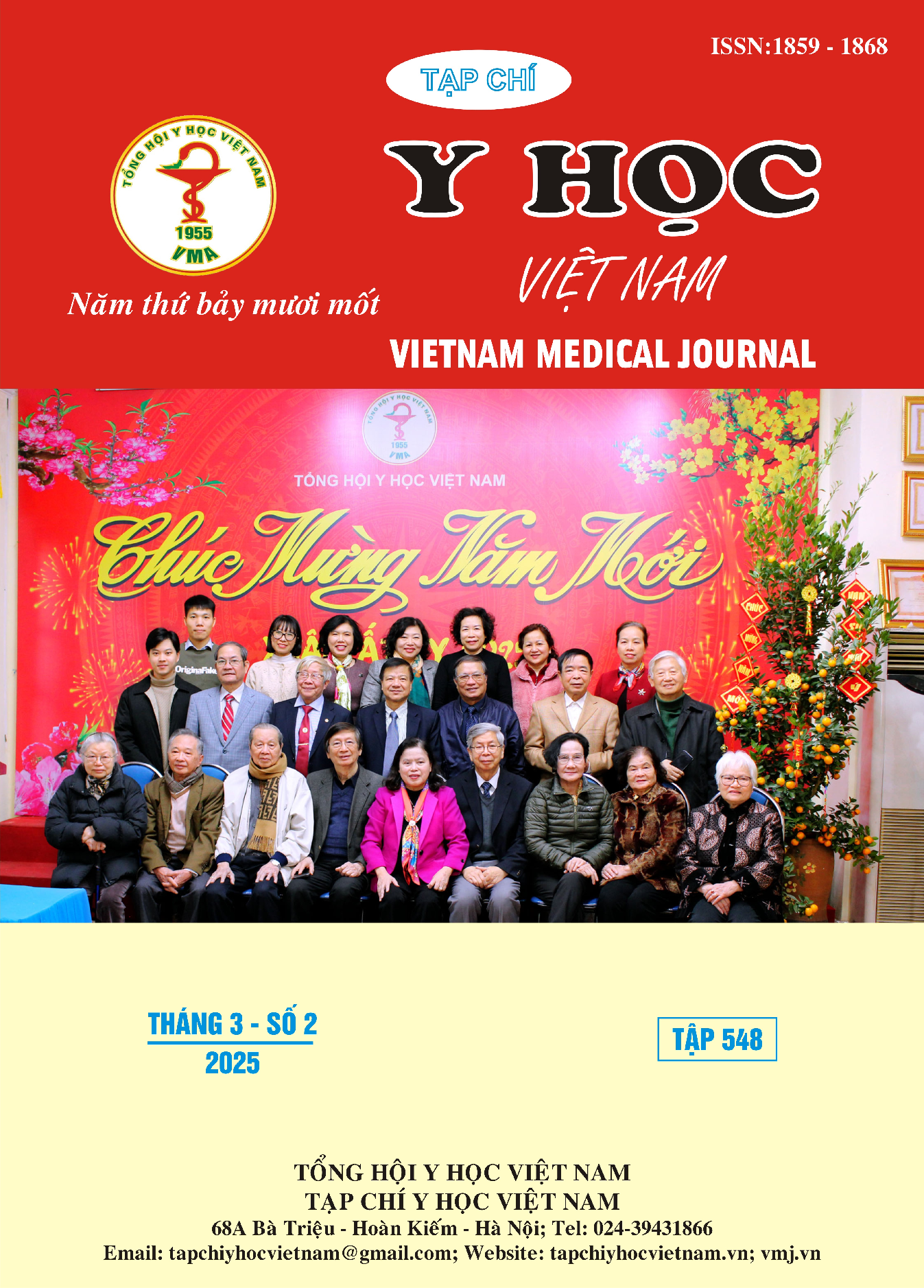EVALUATION OF THE VALIDITY AND RELIABILITY OF THE V-PROMIS-29 SCALE IN ASSESSING QUALITY OF LIFE IN CANCER PATIENTS
Main Article Content
Abstract
Background: Cancer symptoms and side effects of treatment significantly affected patients' physical and mental health. This study evaluated the validity and applicability of the Vietnamese version of the PROMIS-29 scale in assessing the quality of life of cancer patients. Objectives: To assess the validity, reliability of the PROMIS-29 scale and evaluate the quality of life of cancer patients. Methods: The study employed a descriptive cross-sectional design. The PROMIS-29 quality of life scale was used, validated by six oncology experts, and tested on 128 cancer patients from February to May 2024. Results: The Vietnamese version of the PROMIS-29 scale demonstrated item-level content validity index (I-CVI) values of 0.83 or higher, a scale-level content validity index average (S-CVI/Ave) of 0.994 or higher, and a universal agreement (S-CVI/UA) of 0.966 for clarity, comprehensibility, and applicability. The scale's reliability coefficient was 0.928. Quality of life scores were: overall quality of life (126.27), physical function (17.28), social function (17.05), anxiety (5.88), depression (5.16), fatigue (8.5), sleep disturbance (9.39), pain interference (7.3), and pain intensity (2.77). Gender, personal activities, cancer type, cancer stage were related factor patient quality of life. Conclusions: The Vietnamese version of the PROMIS-29 scale has high validity and is suitable for assessing the quality of life of cancer patients in Vietnam. Overall quality of life scores among cancer patients were relatively good, but issues such as fatigue, sleep disturbances, and pain interference require the most attention
Article Details
Keywords
PROMIS-2, Quality of Life, Cancer patient, Validity, Reliability
References
2. Cella D, Riley W, Stone A, et al. The Patient-Reported Outcomes Measurement Information System (PROMIS) developed and tested its first wave of adult self-reported health outcome item banks: 2005-2008. J Clin Epidemiol. Nov 2010; 63(11): 1179-94. doi:10.1016/j.jclinepi. 2010.04.011
3. Kang D, Kim Y, Lim J, et al. Validation of the Korean Version of the Patient-Reported Outcomes Measurement Information System 29 Profile V2.1 among Cancer Survivors. Cancer Res Treat. Jan 2022;54(1):10-19. doi:10.4143/crt.2020.1200
4. Ngo-Metzger Q, Sorkin DH, Mangione CM, Gandek B, Hays RD. Evaluating the SF-36 Health Survey (Version 2) in Older Vietnamese Americans. J Aging Health. Jun 2008;20(4):420-36. doi:10.1177/0898264308315855
5. Kim Y, Kang D, Kang E, et al. Psychometric validation of the Korean version of PROMIS 29 Profile V2.1 among patients with lower extremity problems. BMC Sports Sci Med Rehabil. Nov 24 2021; 13(1): 148. doi:10.1186/s13102-021-00374-1
6. Stone P, Candelmi DE, Kandola K, et al. Management of Fatigue in Patients with Advanced Cancer. Curr Treat Options Oncol. Feb 2023;24(2): 93-107. doi:10.1007/s11864-022-01045-0
7. Laghousi D, Jafari E, Nikbakht H, Nasiri B, Shamshirgaran M, Aminisani N. Gender differences in health-related quality of life among patients with colorectal cancer. J Gastrointest Oncol. Jun 2019;10(3):453-461. doi:10.21037/ jgo.2019.02.04
8. Ngoc Thi Dang D, Ngoc Thi Nguyen L, Thi Dang N, Quang Dang H, Ta TV. Quality of Life in Vietnamese Gastric Cancer Patients. Biomed Res Int. 2019;2019:7167065. doi:10.1155/2019/ 7167065


